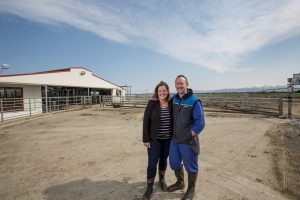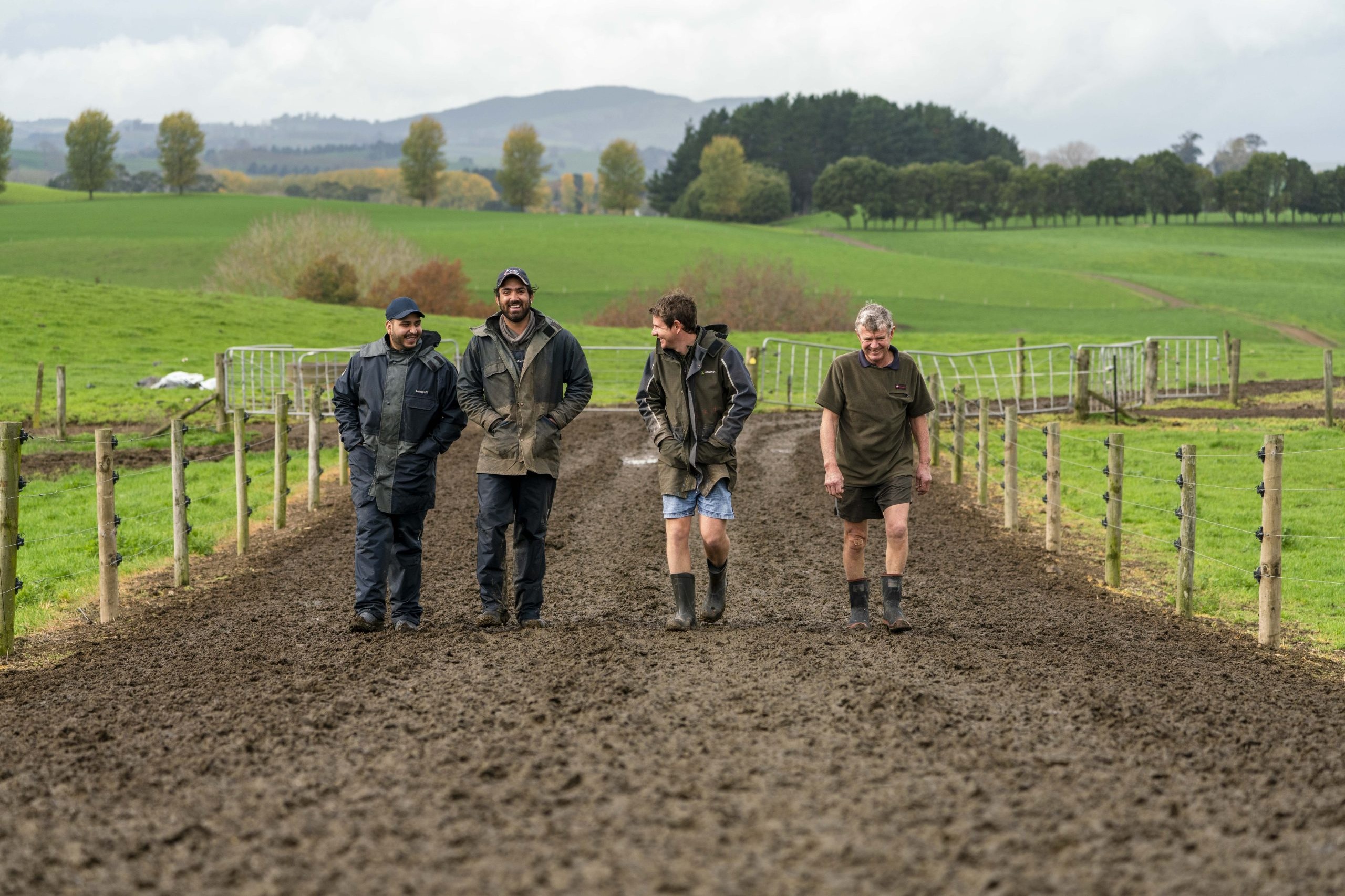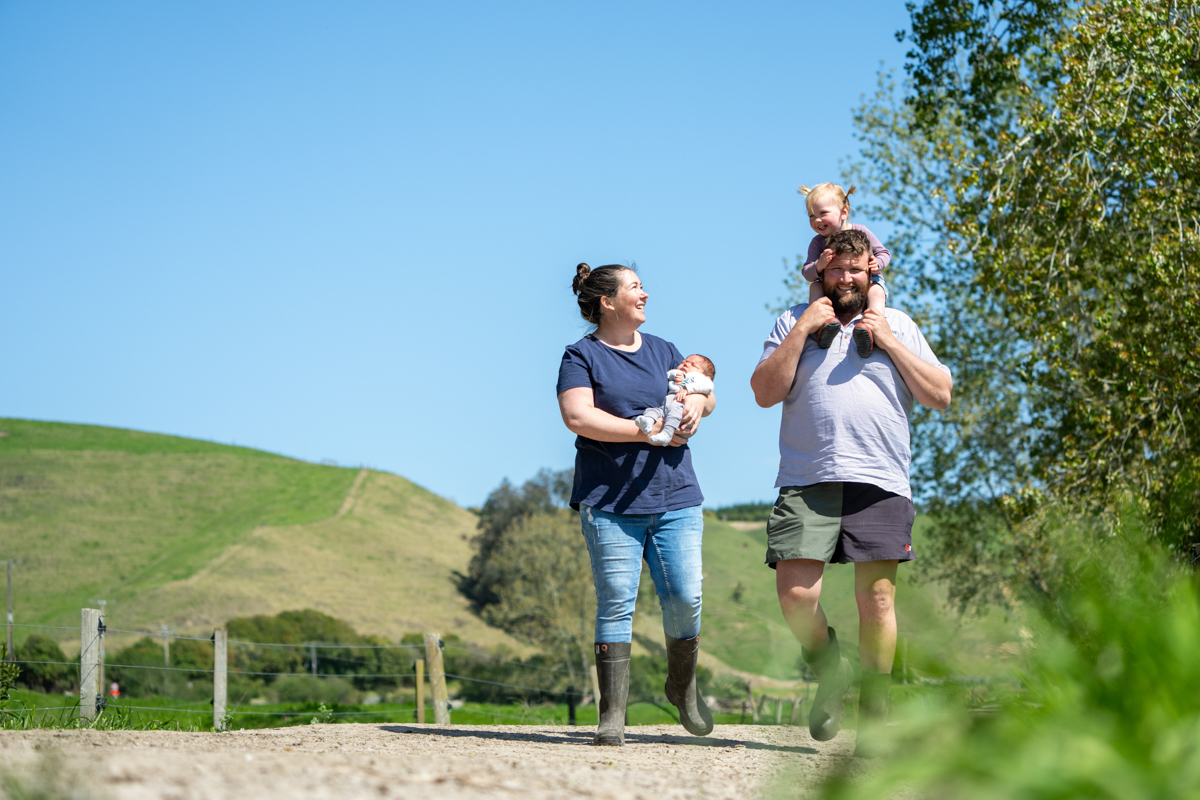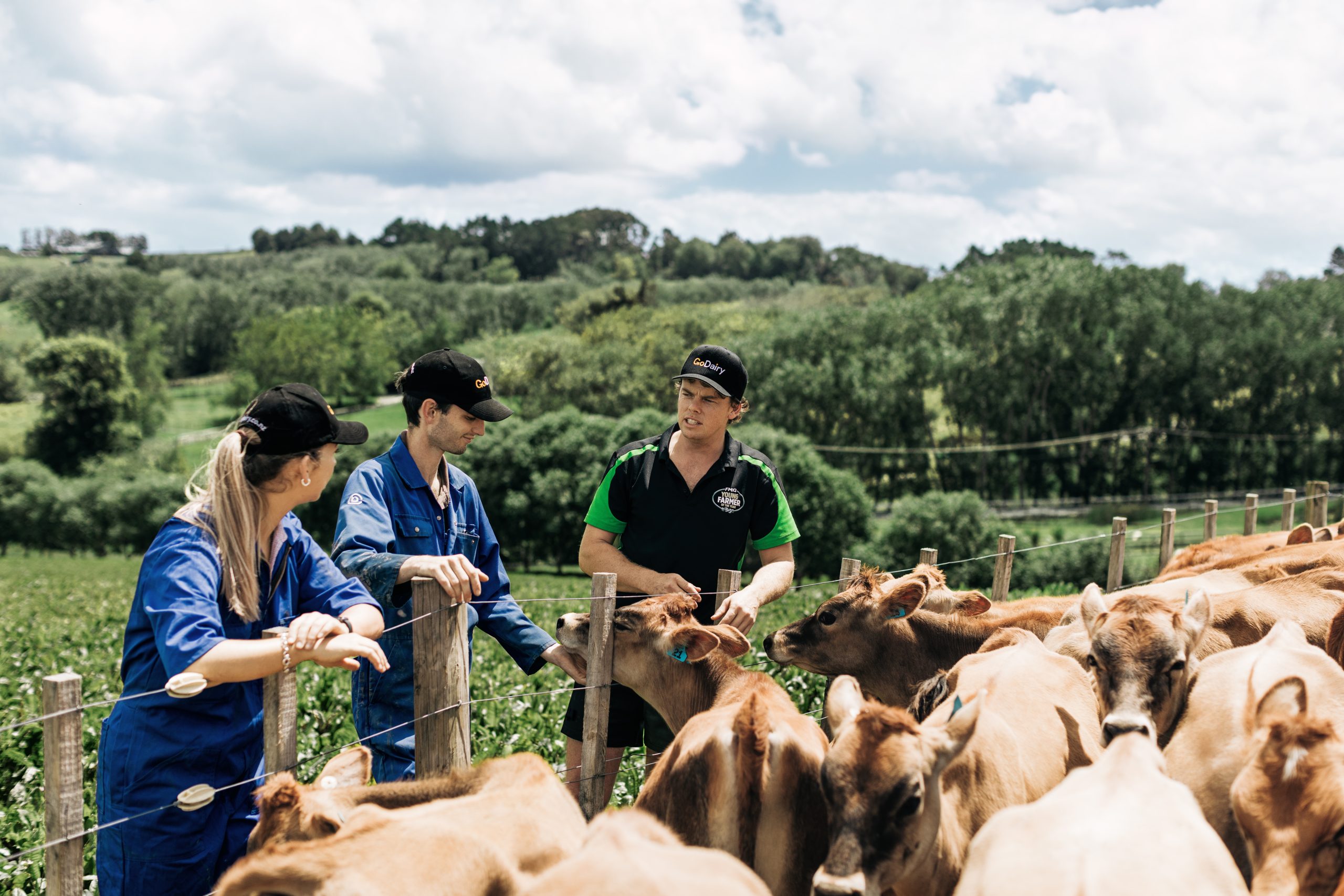By no means all the productivity on a dairy farm is done in the paddocks or dairy. Anne Lee reports.
Contributing to progress in your dairying career doesn’t necessarily mean putting on the milking apron or striding across the farm with a platemeter each week.
Having a strategic view, financial nous and the ability to get it done when it comes to compliance are just as important.
The issue though for many is that ticking all those boxes – onfarm and in the farm office can seem like a monumental task.
Siobhan and Christopher O’Malley were 2017 national winners of the New Zealand Dairy Industry Awards Sharefarmer of the Year and they’re a prime example of how sharing the load and playing to your strengths can propel a partnership.
Siobhan’s the first to admit that while she loves farm life she has seldom been seen putting cups on cows.
Her first practical farming task was to rear the calves when they went lower-order sharemilking three years after they’d first entered the industry.
‘There’s literally too much for one person to do now if they had to be running the farm and carrying out all this admin on their own.’
“The farm owner was fantastic, she spent time with me and taught me how to do a good job there but I also read everything I could – not just about calf rearing – about everything I could be involved with,” she says.
“I read every single Dairy Exporter magazine and paid a lot of attention to stories on people who progressed, learning how they progressed, what they did.
“We’re so lucky in the dairy industry – there’s just so much information available to us through places like DairyNZ, field days, workshops and Dairy Women’s Network and a lot of it is free.
“I went to everything I could and then put it into practice using the things I’d learnt in our business.”
Over the next three years as they moved jobs and grew the size of their business they sold a house they owned and started buying young stock. Siobhan’s role grew alongside their family with their three children born as they built their skills and equity.
“I have a huge amount of gratitude because I went from being a busy fulltime teacher to being at home with the kids and I think I would have struggled if I hadn’t been able to keep on learning and helping Christopher building and growing the business.”
She took on the human resources role, writing the advertisements for vacancies, going through applicants’ CVs, drawing up the job descriptions and carrying out the interviews with Christopher, completing the employment contracts and then managing wages and PAYE.
Compliance across the whole farm business from staffing and health and safety to environmental consents and dairy company rules now require serious attention and considerable time, she says.
“I think there’s literally too much for one person to do now if they had to be running the farm and carrying out all this admin on their own.”
With a Masters degree in classics, the reader/writer in Siobhan relishes those tasks so she’s not daunted by reading through forms, policies and documents to make sure they’re more than covering all the bases.
But on the numbers side, she says she’s had to work to upskill herself.
“I’d never used Excel so I quickly had to get to grips with that and I’ve learned to use three different accounting programmes over the years too.
“Our accountants – KPMG in Timaru helped me with that a lot so I can do a lot of the financials too – I just find I spend more time checking and re-checking those to make sure I’ve got everything absolutely right.”
She’s worked with Christopher in setting their budgets, codes and loads the accounts and payments and has done the GST.
“We communicate all the time about what’s going on so when we were sharemilking and I was doing the variance to the budget through the season I’d often know already why some things were over or under – but we’d talk about it and then I’d basically write that conversation up as a report and send it to the bank every two months.”
As part of upskilling, Siobhan completed a PrimaryITO diploma in agribusiness.
“What I was looking for with that was formal recognition of what I’d already learnt and to back-fill some of the gaps.
“I’d really thrown myself into learning all I could on the job so I’d done a lot in a very short time.”
Strategic thinking and having the head space to recognise and analyse opportunities is another area where Siobhan has been able to help drive their career.
“During the year of the record payout lots of people bought tractors or new equipment – we bought a spa and it’s been our best governance tool.
“We’ve had some really powerful conversations there. You’re relaxed and you can take the time to really talk,” Siobhan says.
Because she’s always reading, keeping up with what’s happening in the industry and checking out social media she has plenty of fodder for discussions with Christopher.
“People asked us for instance, how we knew to sell our A2 cows when we did – that was simply by reading the newspaper, seeing milk companies were offering A2 milk contracts and then talking about what that could mean,” Siobhan says.
“We thought demand for A2 cows would go up and because our cows were our asset we decided to sell them and lock in good prices,” Christopher says.
At the end of last season, the pair made another big leap, this time selling their whole herd.
Again it was a very strategic decision.
They had finished the last of their three-season contract and decided it was timely to bank the equity they had in their cows while prices were good.
Their business included income from stock sales and they expected Mycoplasma bovis would make that more difficult.
Christopher took an opportunity to manage a new, 313-hectare, 1000-cow conversion at Te Pirita for Craigmore Sustainables and Siobhan is embarking on a new business venture unrelated to farming.
“The business skills I’ve learnt over the last few years are completely transferable to any business,” she says.
The couple are still focussed on farm ownership as their ultimate goal – a 400-500-cow farm probably on the West Coast where prices are a little more affordable.
“The goal is the same but the pathway isn’t necessarily the straight line we thought it was at the beginning,” Siobhan says.
She’s finishing her Kellogg Rural Leadership project looking at the viability of a carbon neutral red meat brand.
She says it’s been a fantastic experience with the opportunity to network with proactive people a major benefit of the programme.
The Dairy Industry Awards competition is also an opportunity to network and learn.
The people she’s met through both have fuelled a strong sense of positivity about the future of the industry and opportunities, she says.
“Compliance and regulations can make people fearful but if the outcome is going to give us a more sustainable industry and a greater social licence then we shouldn’t be afraid of it.”
For Siobhan and Christopher, the key is to be aware, learn and get involved so that perceived threats become opportunities not just for the sector but for driving their own business.

Siobhan’s take homes
- Read and be aware of what’s happening in the industry
- Take every learning opportunity you can (so many are free)
- Find time to talk about the big picture
- You can contribute hugely to your farming business without doing the cows and grass stuff
- Use your bankers, accountants, rural professionals to build your own business skills
Check out Siobhan and Christopher’s social media on Facebook and Instagram Pukeko Pastures





